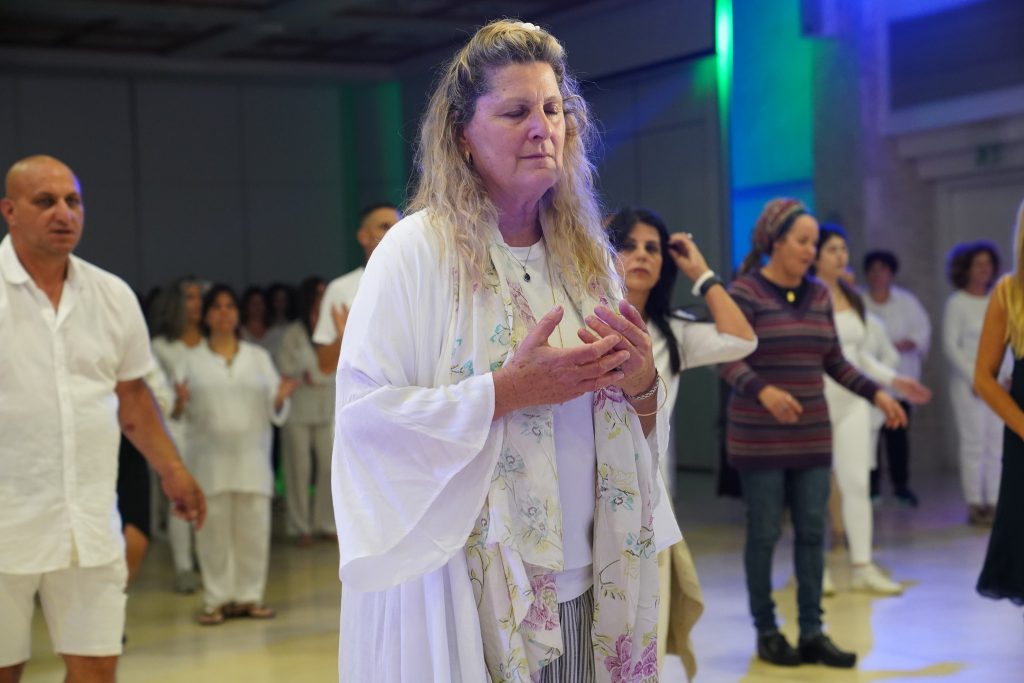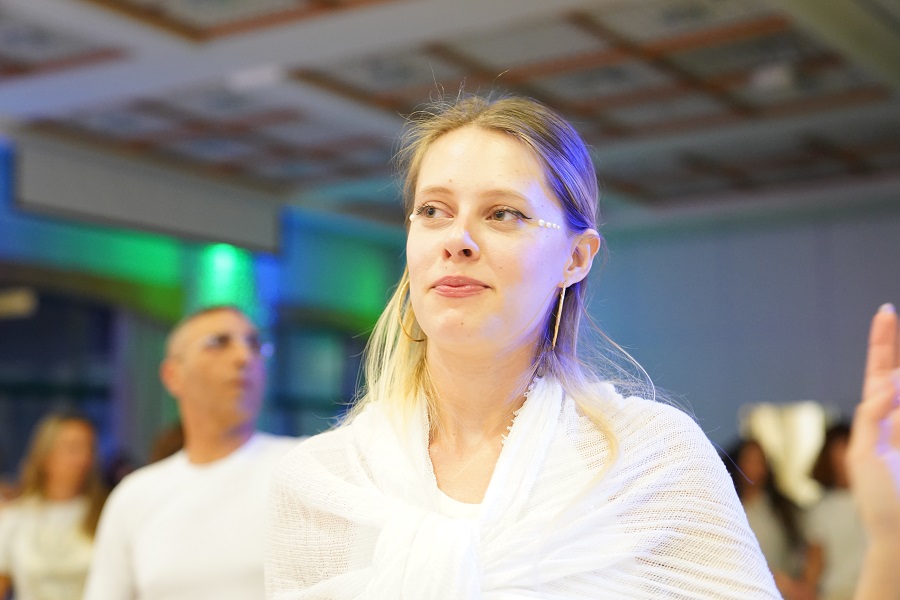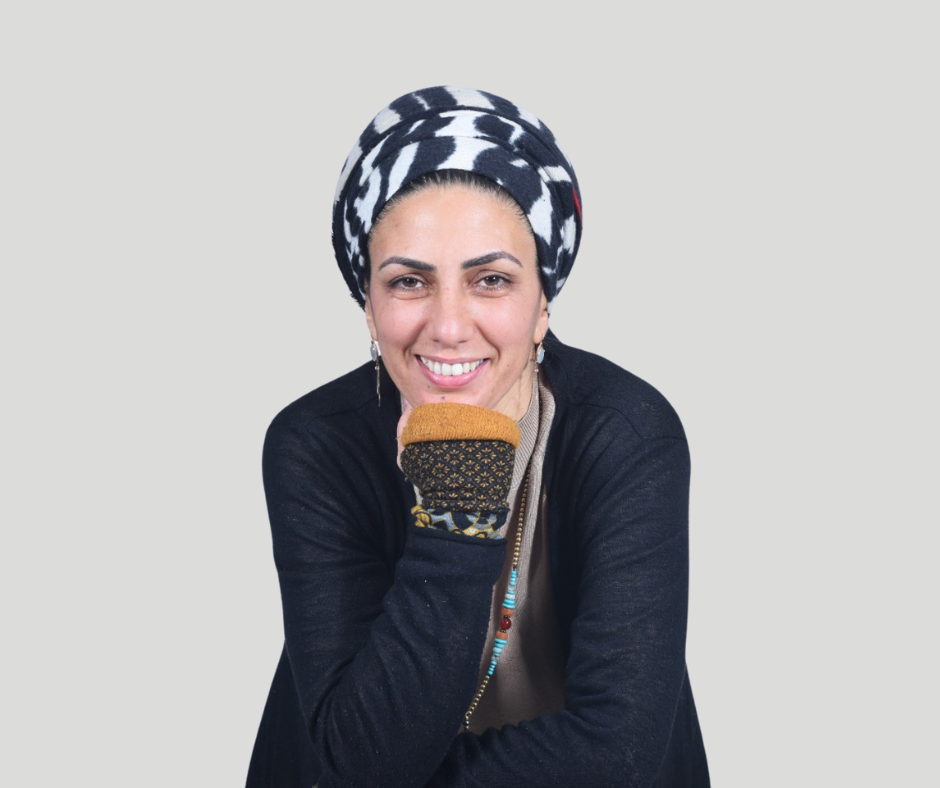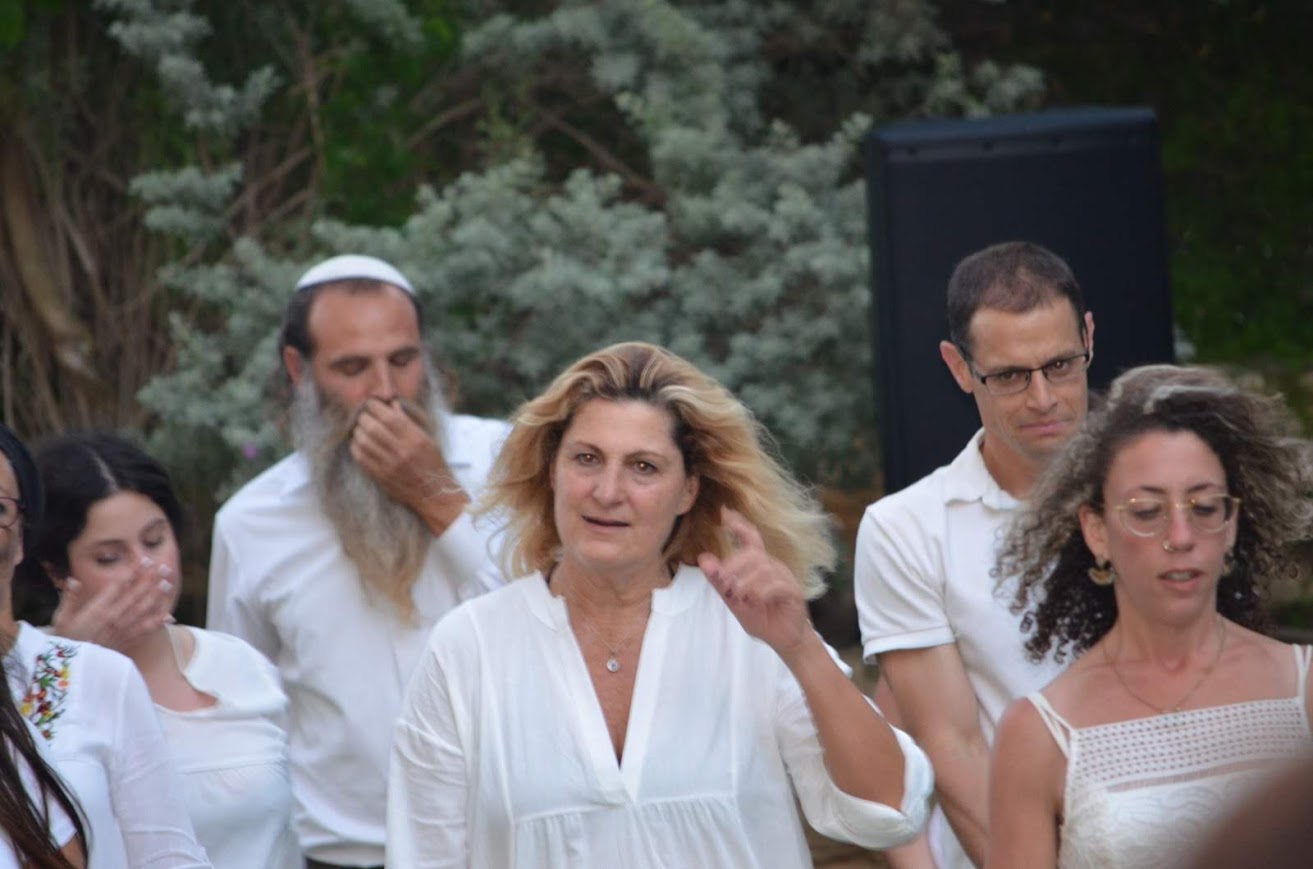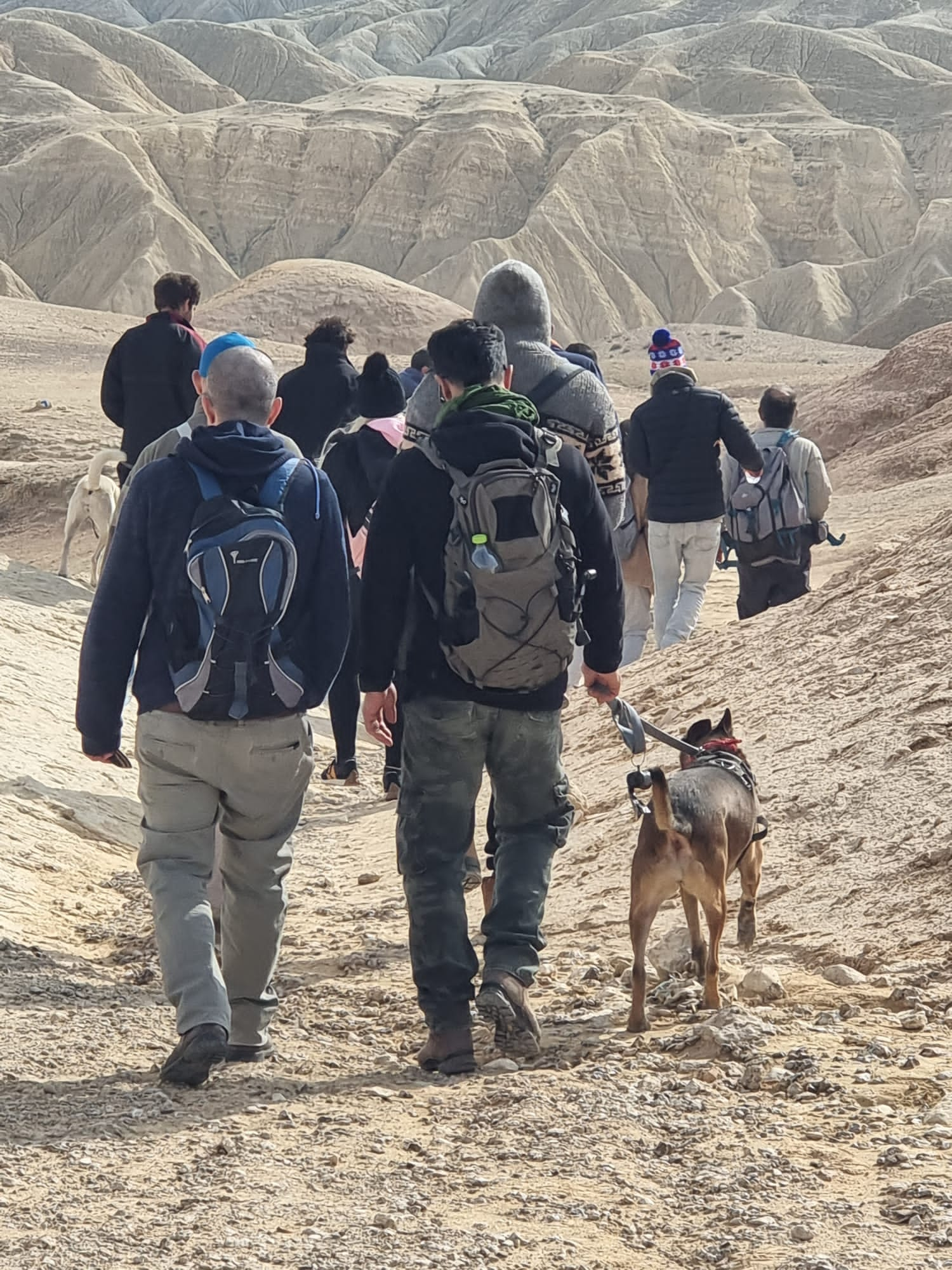
The way of Narcotics Anonymous – Treatment in Thailand
Narcotics Anonymous
Background and Story of Triumph

Narcotics Anonymous | Addicts Anonymous: Historical Background and Story of Triumph | DaoTherapy Rehab
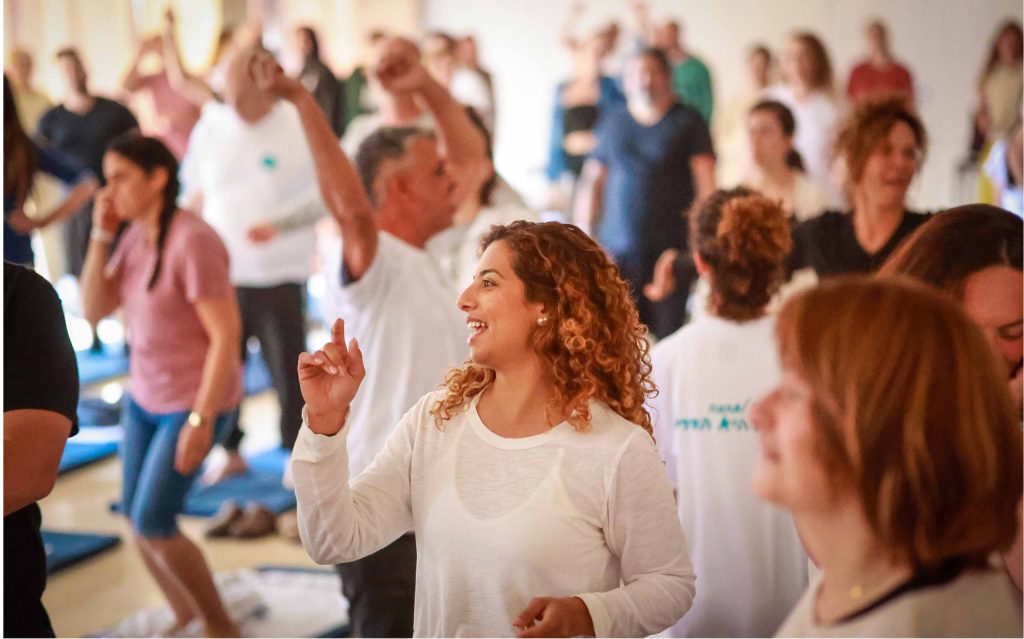
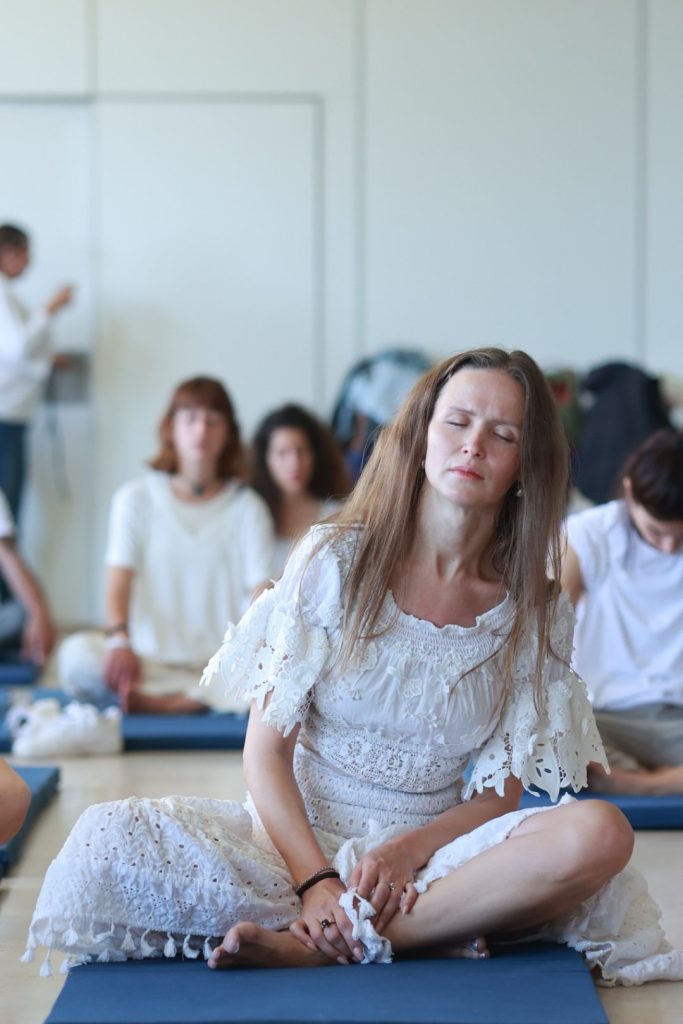

Narcotics Anonymous (NA) founded in 1953, describes itself as a “non-profit fellowship or society of men and women for whom drugs have become a major problem.” Narcotics Anonymous utilizes the 12-step model developed for individuals with various substance use disorders and is the second-largest 12-step organization in the world.
Your recovery,
is in our hands
The entire team of experts at Dao-Therapy Rehab Thailand is at your service for any matter related to trauma and addiction recovery in Thailand.
daotherapy
The way of the Narcotics Anonymous group.
Membership and Organization:
The Third Tradition of NA states that the only requirement for membership is “a desire to stop using.” NA explains that its meetings are where members can “meet regularly to help each other stay clean.” All facts and quotes presented in the literature “The Narcotics Anonymous Program,” unless sourced otherwise, come from *Narcotics Anonymous (Basic Text)*. Membership in NA is free, with no fees or dues.
Membership and Organization:
The foundation of the Narcotics Anonymous program is the Twelve Steps and Twelve Traditions. Narcotics Anonymous makes slight modifications to the wording of both the Twelve Steps and the Twelve Traditions compared to other Twelve-Step groups. According to the *Basic Text*, Narcotics Anonymous "has no opinion on outside issues," including those related to politics, science, or medicine, and does not endorse any outside organization or institution. The fellowship does not actively promote itself but attracts new members through information and public outreach. People may also be referred to NA by courts or rehabilitation programs. NA groups and regions provide external organizations with factual information about the NA program, and individual members may carry the NA message to hospitals and institutions, such as treatment centers and prisons.
The Nature of Addiction
According to the philosophy of the NA program, most addicts did not realize they had a drug problem until they were left with nothing and no one. Even if others pointed out that they had a drug issue, they were often convinced otherwise. But once an addict tries to stop on their own and realizes they can't, they finally see that drugs control them. Addicts lived to use and used to live. NA helps show them another way of life and assists them in confronting their illness. NA describes addiction as a progressive disease with no known cure, affecting every aspect of an addict's life: physical, mental, emotional, and spiritual. NA suggests that the disease of addiction can be halted, and recovery is possible through the Twelve Steps of NA. The Steps never specifically mention drugs or drug use; instead, they refer only to addiction, emphasizing that addicts have a disease, of which drug use is just one symptom. In the NA program, all drugs are considered equal, and alcohol is also regarded as a drug. Other symptoms include obsession, compulsion, denial, and self-centeredness.
Meetings
**Meetings** NA meetings are the foundation of the program, providing a safe and supportive environment for members to share their experiences, strength, and hope. Meetings offer a space where addicts can connect with others who have been through similar struggles, helping them to feel less isolated in their journey toward recovery. Meetings vary in format, with some focusing on sharing personal stories, while others concentrate on studying the Twelve Steps or other NA literature. Meetings are typically held regularly and are open to anyone seeking recovery. In NA, confidentiality is paramount, ensuring that what is shared in meetings remains private. Members are encouraged to attend meetings regularly to stay connected with the recovery community and receive ongoing support as they work through their addiction and embrace a new way of life.
Narcotics Anonymous
By: Dr. Avraham Mizrahi
There are two basic types of meetings: “open” and “closed.” Everyone is welcome to attend an open meeting, while closed meetings are limited to addicts and those who think they may have a problem with drugs.
Meeting formats vary, but they often include time dedicated to reading NA literature aloud, addressing issues related to living a clean life, written by and for NA members. Many meetings are chaired by a person who selects speakers. Other meetings include an “open sharing” segment, where anyone attending has the opportunity to share. Typically, there is no direct feedback during sharing, so only one person speaks at a time. These are often described as discussion meetings. Some groups host a single speaker (marked as “speaker meetings”) who shares for most of the meeting time.
Other meeting formats include round-robin sharing (where the sharing goes around in a circle), tag meetings (where each speaker selects the next person to share), and stick meetings (where members draw a slip of paper with a topic to share about). Some meetings focus on reading, writing, or sharing about one of the Twelve Steps or other NA literature. There are also “common needs” meetings (also known as special interest meetings), which support a specific group based on gender, sexual identity, age, language, or another characteristic. These meetings are not exclusive, and any addict is welcome at any NA meeting. NA communities often make an effort to hold a simultaneous separate meeting for members who do not identify with the common needs group.
During the meeting, some groups allocate time for NA-related announcements, and many meetings set aside time to recognize “anniversaries” or “birthdays” for clean time. Sometimes people are invited to announce their clean time. Medallions and keychains, signifying different amounts of clean time, are awarded to those
NA literature suggests that service work is an essential part of the recovery program. Service is about “doing the right thing for the right reason,” and is the best example of “goodwill,” which is the foundation for freedom from active addiction through the NA program. Service work is typically seen as chairing a meeting but can be as simple as cleaning up after a meeting, setting up chairs, or answering the phone.
In addition, there are basic and official service positions at the group level to help the group fulfill its role, such as treasurer, secretary, and Group Service Representative (GSR), who represents the group in the larger service structure.
NA’s service structure operates at the area, regional, and world levels. These service levels exist to serve the groups and are directly accountable to them; they do not have control over the groups. The world services are accountable to the regions that are members, which in turn are responsible to their member areas.
Area service committees directly support the member groups and often organize special events such as dances and picnics. Regional service committees also provide special subcommittees to meet the needs of members who may be incarcerated in prisons and institutions, and they offer a public interface for the fellowship.
The Basic Text of Narcotics Anonymous, titled Narcotics Anonymous, is divided into two sections. The first section discusses the foundations of the NA program, including the Twelve Steps and the Twelve Traditions. The second section consists of numerous personal stories from members, sharing their experiences, struggles, and successes in recovery.
It Works: How and Why offers a detailed discussion of the Twelve Steps and Traditions and is often referred to as “Green and Gold” because of its cover.
The Step Working Guides are a workbook with questions for each step and are often called “the flat book.”
Just for Today is a daily meditation book with quotes from the Basic Text and other NA-approved literature, including informational pamphlets (IPs).
Sponsorship provides an in-depth discussion on the role of a sponsor in NA, including members’ personal experiences.
Miracles Happen describes the early years of the NA organization. This book contains numerous photographs of early literature and meeting locations.
Living Clean: The Journey Continues, approved by the World Service Conference in May 2012, shares the experiences of members staying clean and in recovery while facing life’s challenges, such as illness, death, parenting, spiritual paths, and employment.
Guiding Principles: The Spirit of Our Traditions, approved by the World Service Conference in May 2016, explores the principles found in NA’s Twelve Traditions. It serves as a resource for NA members to learn the essence of the traditions and understand their application for groups, members, and service committees.
NA has also produced dozens of Informational Pamphlets (IPs), of varying lengths, covering a wide range of topics related to recovery. These include questionnaires for those who think they may have a drug addiction and information for addicts trying to stay clean while in hospitals or institutions.
NA describes itself as a spiritual program for recovery from the disease of addiction. The NA program places significant emphasis on developing a working relationship with a “Higher Power.” The literature encourages members to form their personal understanding of this Higher Power. The only guidelines offered are that this power is “loving, caring, and greater than the addict and stronger than the disease of addiction.”
Members are given complete freedom to arrive at an understanding of a Higher Power that works for them. Individuals from various spiritual and religious backgrounds, as well as many atheists and agnostics, have developed a relationship with their Higher Power. NA frequently uses the word “God,” and some members who struggle with this term substitute it with “Higher Power” or interpret it as an acronym for “Good Orderly Direction.”
The Twelve Steps of the NA program are based on spiritual principles, three of which are honesty, open-mindedness, and willingness, embodied in the first three steps. These are not exhaustive, as the Basic Text of NA states in Chapter Four: “These are the principles that made our recovery possible.” According to NA members, these principles, when practiced to the best of one’s ability, offer a new way of living.
NA meetings typically close with participants standing in a circle, engaging in a group hug, and reciting the Serenity Prayer. The prayers commonly used to close meetings today include the “We” version of the Serenity Prayer: “God, grant us the serenity to accept the things we cannot change, the courage to change the things we can, and the wisdom to know the difference.”
The Third Step Prayer (“Take my will and my life. Guide me in my recovery. Show me how to live.”) or the “Gratitude Prayer” (“That no addict seeking recovery ever need die… My gratitude speaks when I care and when I share with others the NA way.”).
Sponsorship is a key element in Narcotics Anonymous (NA), providing a personal connection and support system within the fellowship. A sponsor is a more experienced member who has been through the Twelve Steps and offers guidance to newer members as they work through the steps themselves.
1. Role of a Sponsor: A sponsor helps the sponsee understand and apply the principles of the Twelve Steps, providing advice, encouragement, and support during challenging times in recovery. Sponsors share their own experiences, offer perspective, and help the sponsee navigate the spiritual and emotional journey of recovery.
2. Choosing a Sponsor: It is common practice for members to select a sponsor they feel comfortable with, usually someone who has more time in recovery and whose approach to the program resonates with them. Sponsors are volunteers and do not take on a hierarchical or authoritative role, but rather act as peers who have shared the experience of addiction and recovery.
3. Benefits of Sponsorship: The relationship between sponsor and sponsee offers both parties opportunities for growth. Sponsors benefit from being reminded of their own recovery journey and find strength in helping others, while sponsees gain a trusted mentor to guide them through the often difficult process of working the steps.
4. Working the Steps: A sponsor’s primary role is to assist the sponsee in working through the Twelve Steps of NA. This process is deeply personal and can include discussions, written exercises, and shared insights that help the sponsee move forward in recovery.
Sponsorship creates a bond of mutual trust and accountability, providing an essential layer of support that helps addicts maintain sobriety and develop spiritually, emotionally, and mentally.
Anonymity is a foundational principle of Narcotics Anonymous (NA) and plays a crucial role in creating a safe and non-judgmental environment for members. It serves both as a form of protection and a way to promote equality among members.
- Protecting Privacy: Anonymity ensures that members’ identities and personal stories remain confidential. This encourages openness and honesty, as individuals feel secure that their experiences will not be shared outside the group. What is said in meetings stays in meetings.
- Promoting Equality: Anonymity helps prevent hierarchy within the fellowship. In NA, no member is more important than another, regardless of their length of sobriety or external status. This principle fosters a sense of community where all members are equal, united by their shared experience of addiction and recovery.
- Outside Representation: According to NA’s traditions, members are encouraged to maintain anonymity in public media. This means that no individual speaks for NA as a whole in public forums, helping to keep the focus on the group’s message rather than on individual personalities.
- Spiritual Principle: Anonymity is seen as a spiritual principle that reminds members to practice humility. It underscores that the recovery program is about collective support and spiritual growth, rather than personal recognition or achievement.
Through the principle of anonymity, NA creates an inclusive, safe, and equal space for recovery, allowing members to focus on healing and supporting one another without fear of judgment or exposure.
Alcoholics Anonymous (AA) was the first 12-Step program, and through it, many with drug and alcohol issues found sobriety. The Fourth Tradition grants each AA group the autonomy to include or exclude non-alcoholics from “closed” meetings—those in which only individuals with a stated desire to stop drinking are allowed to attend. In “open” AA meetings, non-alcoholics are welcome.
In 1944, AA co-founder Bill Wilson discussed the possibility of a separate fellowship for drug addicts.
In 1947, a group called NARCO (also referred to as Addicts Anonymous) began meeting weekly at the U.S. Public Health Service treatment center (Federal Medical Center, Lexington) within the federal prison in Lexington, Kentucky, for 20 years.
In 1948, a member of NARCO started a short-lived fellowship also named “Narcotics Anonymous” in the New York City prison system in New York, NY.
This version of NA did not adhere to NA’s Twelve Traditions, which led to issues within the fellowship and ultimately to the dissolution of that NA group by the late 1940s.
Jimmy K., who is credited with founding the NA we know today, did make contact with Ray Perez, a leading member of this earlier NA fellowship. However, because that fellowship chose not to follow the Twelve Traditions written by AA, the two versions of NA never merged.
In 1953, Narcotics Anonymous (NA) was founded in California by Jimmy Kinnon and others.
Unlike its predecessors, NA established a fellowship of mutual support groups. Its founding members, most of whom came from AA, debated and eventually adopted the Twelve Traditions of the NA fellowship. On September 14, 1953, AA granted NA permission to use AA’s Twelve Steps and Traditions, on the condition that NA stop using the AA name, leading the organization to officially call itself “Narcotics Anonymous.”
In 1954, NA printed its first publication, called “The Little Brown Book.” It contained the Twelve Steps and early drafts of several pieces that would later be included in more formal NA literature.
At that time, NA was still not widely recognized by society as a positive force. The initial group struggled to find locations for meetings and often had to gather in members’ homes.
The first NA meetings were held in church basements to protect the members because there was still an old law prohibiting convicted felons from gathering, and churches offered their basements as safe spaces.
Members would check meeting locations for surveillance to ensure that the police would not disrupt the meetings. It took many years before NA was fully recognized as a beneficial organization, though a few early press reports were very positive.
Additionally, many NA groups did not strictly follow the Twelve Traditions (which were still relatively new at the time). Some groups accepted money from outside sources, mixed AA and NA practices, or even incorporated religious elements into meetings.
For various reasons, NA meetings began to decline by the late 1950s, and there was a four-month period in 1959 during which no meetings were held anywhere.
In response, Jimmy Kinnon and others issued an urgent call to action, dedicating themselves to revitalizing NA and ensuring that the fellowship would adhere more strictly to the Twelve Traditions.
By late 1959, NA meetings began to form and grow once again. The *NA White Booklet* was written in 1962, becoming the heart of NA meetings and the foundation for all subsequent NA literature. NA was often called the “hip pocket program” because all the literature could fit into a person’s hip pocket. This booklet was republished in 1966 as the *NA White Book*, now including the personal stories of many addicts.
NA’s first helpline was established in 1960, and the first H&I (Hospitals and Institutions) group was formed in 1963. H&I is a subcommittee of NA that brings the NA message to hospitals and institutions where people cannot attend outside meetings. That same year, the “Parent Service Board” was created (later renamed the *World Service Board*) to ensure that NA remained healthy and adhered closely to the Twelve Traditions. Interestingly, in 1962, the Salvation Army founded a group also called “Narcotics Anonymous,” which followed a different “13-Step” program. However, that group quickly dissolved. Throughout the 1960s, NA grew slowly, with members learning what worked and what didn’t. Relapse rates gradually declined, and friction between different NA groups decreased over time.
The 1970s marked a period of rapid growth for NA. In 1970, there were only 20 regular weekly meetings, all within the United States. Within two years, there were 70 meetings, including those in Germany, Australia, and Bermuda. By 1976, there were 200 regular meetings, including 83 in California alone. In the early 1980s, NA had spread to Brazil, Canada, Colombia, India, the Republic of Ireland, Japan, New Zealand, and the United Kingdom. In 1980, the first NA meeting in London was opened on Milman Street, Chelsea, with six members, and a second meeting followed months later. By 1981, there were 1,100 meetings worldwide, and in 1983, Mary Bolton founded Narcotics Anonymous in Ireland.
NA’s *World Service Office* officially opened in 1977. The first World Service Conference of NA was held in 1971, followed by annual conferences in the years that followed.
This period of growth established NA as a global fellowship, providing addicts worldwide with the tools and support necessary for recovery.
From the inception of Narcotics Anonymous (NA), there was a clear need for official NA literature. Unfortunately, the process of creating and approving official NA literature sparked some of the most contentious debates within the fellowship. While the *Yellow Pamphlet*, the *Little White Booklet*, and the *Little Brown Book* were in use during the 1960s and 1970s, many members sought a more comprehensive recovery text similar to Alcoholics Anonymous’ *Big Book*. Some meetings used AA literature, while others considered writing their own recovery books.
One group even planned to print an edited version of the AA *Big Book*, replacing every instance of the word “alcohol” with “drugs.” Recognizing the need for a unified text approved by the fellowship’s “group conscience,” the first World Literature Conference of NA was held in Wichita, Kansas, in October 1979.
Unlike earlier literature, which had been written by a small number of individuals (primarily by Jimmy Kinnon), the *NA Basic Text* was a massive collaborative effort involving hundreds of members. A total of seven World Literature Conferences took place over three years, all open to any addict who wanted to contribute. It was decided that the new book would use the *Little White Book* as its outline, filling out and expanding the topics discussed in that text.
In November 1981, a final draft was distributed to the entire NA fellowship for approval, and the text was approved by the required two-thirds majority. However, after approval, publication was delayed due to disputes between World Service Office (WSO) members and those who had written the book. The disagreements revolved around a few key phrases that described the nature of the NA World Service Organization and other service entities. The book was printed in 1983, with those contentious passages removed.
Due to the fellowship’s demand, a second edition was quickly released, restoring the removed sections. However, a rushed vote required Regional Service Representatives (RSRs) to respond within 60 days, despite most regions meeting only every 90 days. This made it impossible to conduct a proper survey of NA groups, and once again, the contentious passages were removed in the third edition.
In 1986, professional editors and writers were hired to improve the *Basic Text*, ensuring greater consistency in tone and style. The fourth edition, released in 1987, was poorly reviewed, as it had numerous issues, including 30 missing lines and text that was inconsistent with other NA literature. A fifth edition was released in 1988 to address these problems.
In 2004, the World Service Conference (WSC) initiated a project to revise the *Basic Text*. This new edition aimed to remove some of the personal stories from the fifth edition and replace them with a more diverse range of personal stories from around the world. The first 10 chapters would remain the same, as would the introduction and the “symbol” page. The original introduction would be renamed “Introduction to the First Edition.” There were some structural changes to the layout and flow of the book, while keeping the original message clear and intact. The task of selecting the new stories was passed from the World Service Office to regional meetings, to Area Service Committee meetings, and finally to individual home group meetings, where every member had the chance to review the new text.
When the approval draft was released on September 1, 2006, 7,500 copies were distributed (4,493 mailed and 3,009 downloaded by members). Approximately 350 submissions were received, 60% from individuals, 17% from groups, and 23% from committees. More than 20% (161) of the personal stories submitted came from outside the United States. Additional submissions were received later, and more detailed statistics are unavailable.
The sixth edition of the *NA Basic Text* was approved, featuring over 40 new personal stories from around the world. Due to the addition of so many new experiences from NA members, this edition is larger than any of the previous ones. After the rapid succession of five editions during the 1980s, this was the first new edition in 20 years.
On October 1, 2008, the fifth edition was replaced by the sixth edition in the World Service Office inventory at NA.org. Copies of the *Basic Text* are sold, or given away for free by group funding, at NA meetings and are available in over 30 languages. Millions of copies have been sold worldwide, helping countless addicts in their recovery journey.
The sixth edition of the *Basic Text* was published in 2008, and a special edition was released that same year, known as the 25th Anniversary Edition of the *First Edition Basic Text*.
In 2003, NA World Services approved a new text titled *Sponsorship*. This book aims to help individuals explore the concept of sponsorship within NA.
In recent years, there has been a proposal to revise the booklet *In Times of Illness*. A project proposal for creating a new book was presented at the World Service Conference during the 2008-2010 conference cycle. The proposal was unanimously accepted in 2010.
Over the following two years, members of the NA fellowship participated in a collective effort to create this new book-length piece of literature. The book was titled *Living Clean: The Journey Continues*. At the 2012 World Service Conference, the final draft was presented for approval, and once again, the representatives unanimously supported the proposal. *Living Clean: The Journey Continues* was released to the public in 2012.
More recently, in 2022, NA published the book *Spiritual Principle a Day* (often abbreviated to SPAD). This book consists of a brief message focused on a different spiritual principle for each day of the year. It is similar to another previously published NA book, *Just for Today*, which provides a daily message related to recovery for each day of the year.
Narcotics Anonymous (NA) is fundamentally composed of NA groups. An NA group consists of several NA members who meet regularly, typically at the same time and location each week. Some groups have more frequent meetings, but they are still considered part of one group. Each group’s primary purpose is to carry the message of recovery to the addict who still suffers. Groups operate independently of each other, and NA members are encouraged to choose a “home group” to which they belong, attending regularly and where their absence would be noticed.
Each group selects several leaders or “trusted servants” to serve the needs of the group. These positions may include a group secretary, treasurer, chairperson, Group Service Representative (GSR), and an alternate GSR. The selection process is carried out through the “group conscience,” which is a business meeting made up of group members who strive to make consensus-based decisions. Each group operates autonomously and does not influence NA as a whole, so the responsibilities of trusted servants vary from meeting to meeting.
Group responsibilities, or “group policy,” are developed through group conscience meetings, where a Higher Power is invited to guide the decision-making of each recovering individual, a process known as group conscience. An example of a specific responsibility for one trusted servant might be: “The secretary is responsible for opening the meeting, selecting someone to chair the meeting, ensuring coffee is made, etc. He or she also arranges for the purchase of supplies and keeps group records. The treasurer keeps financial records and pays the group’s bills. The GSR represents the group at area committee meetings and prepares to replace the GSR when necessary.”
This structure helps ensure that NA groups remain self-sufficient and that members actively contribute to the fellowship, fostering a sense of community and support within each group.
The Area Service Committee (ASC) consists of all the participating NA groups within a given area. Group Service Representatives (GSRs) and alternate GSRs from each group in the area regularly meet in a business session where issues are raised and discussed to better address the needs of the groups in the region.
Each ASC elects its own leaders, including:
- Chairperson
- Vice Chairperson
- Secretary
- Treasurer
- Regional Committee Members (RCMs)
Often, the ASC will also have various subcommittees focused on specific service areas, such as:
- Hospitals & Institutions (H&I): Bringing meetings into facilities where individuals can’t attend outside meetings.
- Public Information (PI): Spreading awareness about NA to the public and professionals.
- Activities: Organizing events and fellowship activities for the area.
- Website: Managing online resources and communication.
- Outreach: Reaching out to isolated groups or areas.
- Policy: Establishing policies to help guide the ASC.
- Literature and Literature Review: Distributing and reviewing NA literature.
- Newsletter: Creating regular updates and information for the area.
- Recovery by Mail: Helping members in areas where meetings aren’t easily accessible.
- Conventions: Organizing conventions and large-scale recovery events.
In some large metropolitan areas, multiple ASCs may be grouped together into a Metropolitan Service Committee at a sub-regional level. This is common in very large cities like Los Angeles, where there are several ASCs within the broader metropolitan area. This structure helps better coordinate services and communication across densely populated regions.
Regional Forums in Narcotics Anonymous (NA) are gatherings that allow members from multiple Area Service Committees (ASCs) within a region to come together and share information, coordinate service efforts, and discuss issues affecting the region. These forums play an important role in connecting the local areas with the broader regional and world service structures. Here’s how they function:
Purpose: Regional forums serve as a platform for communication and collaboration among different ASCs in a region. Their primary purpose is to support ASCs, discuss common challenges, and provide guidance on implementing NA’s Twelve Steps and Traditions at a broader level. These forums also help maintain unity across the region and ensure that local groups are aligned with NA’s overall principles.
Participants: Representatives from the ASCs, including Group Service Representatives (GSRs) and Regional Committee Members (RCMs), attend these forums. In addition, trusted servants from various subcommittees (e.g., Hospitals & Institutions, Public Information, etc.) may also participate to address specific service needs. World Service representatives may also attend to provide updates on global initiatives and ensure alignment with the broader NA fellowship.
Functions and Activities:
- Workshops and Training: Regional forums often host workshops to train members on service roles, such as sponsorship, leadership, and effective communication.
- Problem-Solving: Forums provide a space for discussing issues faced by ASCs, such as difficulties with group participation, fundraising, outreach efforts, and other challenges that arise in supporting local groups.
- Coordination of Events: These forums help organize large-scale events, such as conventions, public outreach campaigns, and training for NA members and trusted servants.
- Sharing Resources: ASCs can share literature, best practices, and strategies for improving service efforts and carrying the message to addicts.
- World Service Link: Regional forums act as a bridge between local ASCs and the World Service Office (WSO). This connection ensures that local NA groups are informed about global developments, and any local issues or innovations are communicated up to the global level for consideration.
Subcommittees: Similar to ASCs, regional forums may have various subcommittees to address specific needs at the regional level. Common subcommittees include:
- Hospitals & Institutions (H&I)
- Public Information (PI)
- Convention and Events Committees
- Policy and Guidelines: Developing and maintaining regional policies.
- Frequency and Structure: Regional forums typically meet on a regular basis, such as quarterly or biannually, depending on the size and needs of the region. These meetings are held in a business format, with reports from various ASCs and subcommittees, followed by discussions and decision-making sessions.
Regional forums help maintain consistency across the broader NA fellowship, ensuring that local groups and areas stay connected and aligned with NA’s global mission while empowering them to address their unique local needs effectively.
The **World Service Conference (WSC)** of Narcotics Anonymous (NA) is a biennial service meeting composed of Regional Delegates from regions around the world and members of the NA World Board. This service conference has the executive authority to make decisions on behalf of the entire NA fellowship. Its responsibilities include electing members to serve on the World Board, approving new NA literature, service materials, and making policy decisions that affect the entire fellowship, including organizational structure.
This responsibility continued until the late 1990s when the WSC voted to restructure NA’s service structure. This restructuring included the elimination of the Board of Trustees, the Board of Directors, and several other committees at the world service level, including Public Information, Hospitals and Institutions, Literature, and Translations committees. These were replaced with a single World Board, which is elected by the conference and now oversees all global service functions.
This reorganization streamlined the service structure, making it more efficient and allowing the World Board to take on the primary leadership role in overseeing NA’s global operations, while maintaining accountability to the WSC. The restructuring has helped NA remain responsive to the needs of its growing, diverse, and international fellowship.
The **World Service Conference (WSC)**, through the **World Board**, oversees the **World Service Office (WSO)** of Narcotics Anonymous (NA), located in Chatsworth, a neighborhood in Los Angeles, California, United States. This office handles the production of all approved NA literature, provides resources for WSC-approved projects, and offers limited services to the global fellowship.
Additionally, the WSO is responsible for managing the fellowship’s legal responsibilities, including matters related to copyrights, intellectual property, and accounting. The office employs a number of staff who carry out these functions, ensuring that NA’s literature is distributed properly, legal rights are protected, and financial responsibilities are managed efficiently.
Through these efforts, the WSO helps to maintain the smooth operation of NA’s global services, ensuring that the fellowship remains supported in its mission to help addicts recover.
Narcotics Anonymous (NA) operates on the principle of full self-support, meaning that members are never required to pay any fees or dues to participate in meetings. NA groups and services are entirely funded through voluntary contributions from their members, and NA firmly rejects any external financial support.
Group-Level Finances:
- Voluntary Contributions: Each NA group is supported by the voluntary contributions of its members. These contributions cover expenses such as room rental for meetings, tea and coffee, and literature provided to members. Groups often make certain literature, like Information Pamphlets (IPs) and keytags/chips celebrating clean time, available for free to members, especially newcomers.
- Surplus Funds: After covering essential costs, groups may contribute their surplus funds to the NA service structure. These funds help support Area Service Committees (ASCs), Regional Service Committees (RSCs), and NA World Services (NAWS). This ensures that the entire fellowship, from local to global levels, has the resources needed to function effectively.
Area and Regional Finances:
- Area Service Committees (ASC): ASCs are typically funded by contributions from NA groups. In addition, ASCs often hold events like dances, recovery gatherings, and fundraisers to generate extra income. These funds are used to support area-level services such as Hospitals and Institutions (H&I) subcommittees, which bring NA meetings into treatment centers, hospitals, and prisons.
- Regional Service Committees (RSC): RSCs receive financial support from ASCs and from funds raised through larger events like conventions. These conventions can attract hundreds or even thousands of members and generate significant revenue, which is then reinvested into the fellowship. Regions may also operate local service offices that sell NA literature and use the proceeds to cover their operational costs.
Literature Sales:
- World Service Office (WSO): NA World Services (NAWS), headquartered in California, USA, produces all official NA literature, including the Basic Text and various pamphlets. NA groups purchase this literature, either directly from NAWS or through local/regional service offices. This ensures that NAWS can continue producing literature and supporting the fellowship globally.
- Literature Distribution: Some literature, such as pamphlets for newcomers, is often provided for free by NA groups. Longer works, such as books, are typically sold to members at the group’s cost. Literature sales are a key part of NA’s financial structure, with 87% of NAWS’ income (as of 2004/5) coming from literature sales.
Regional and World Service Offices:
- Area and Regional Service Offices: Regional service offices (RSOs) often purchase NA literature in bulk from NAWS and sell it to local areas and groups at list price. Sometimes, the profits from literature sales exceed the operational costs of these offices. Surplus funds are then used to support regional service projects or passed on to the WSC through NAWS.
- Global Contributions: Regions often contribute to World Services by forwarding surplus funds to support global operations. This ensures that NAWS can fund its global initiatives, including literature production, public information efforts, and the facilitation of the World Service Conference (WSC).
NA World Service Office (NAWS) Finances:
- Sources of Income: At the global level, NAWS is funded primarily through the sale of literature, which accounts for the majority of its income. Additional revenue comes from voluntary contributions from areas, regions, and individual members through the NA service structure.
- Financial Responsibilities: NAWS handles global expenses, such as the production and translation of literature, support for the World Service Conference, and outreach efforts. NAWS does not accept donations from non-members, organizations, or governments, ensuring that NA remains independent and free from outside influence.
- Financial Accountability: NAWS is transparent about its finances, and financial reports are available to the public on NA’s official website. This ensures that members and the public can see how NA’s funds are being managed. However, NAWS has faced financial challenges, such as the $596,000 net loss at the 2007 World Convention of NA.
Conclusion:
NA’s financial structure is designed to maintain the fellowship’s self-sufficiency and independence. Through voluntary contributions, literature sales, and fundraising events, NA groups, areas, regions, and World Services can operate effectively while staying true to the Seventh Tradition: being fully self-supporting without accepting external contributions.

contact us
Contact us with your questions
We would love to speak with you! Feel free to reach out with any questions.

get in touch
Schedule a free consultation
Schedule a free consultation with our team and let’s make things happen!
Learn from the best professionals.
The DaoTherapy Academy for Trauma and Addiction Studies.
A journey of healing and conscious transformation through the 12 Steps with DaoTherapy.
Our process
We combine the traditional 12-Step method with a holistic approach rooted in DaoTherapy principles, which includes meditation, yoga, mindfulness, and emotional work. Participants embark on a personal journey of self-discovery and healing, exploring spiritual principles and practical tools for facing life’s challenges, building inner resilience, and maintaining mental balance.
Our mission
To provide practical and spiritual tools to anyone seeking meaning, feeling stuck, or facing a spiritual or emotional crisis, as well as those dealing with addictions and trauma. These tools are based on the principles of the 12 Steps and the holistic DaoTherapy approach. Our mission is to guide participants through a personal healing process and foster profound conscious transformation.
Our vision
Creating a world where individuals struggling with addictions and trauma, along with their families, can find a path to healing, personal growth, and spiritual awakening. We are committed to integrating ancient philosophies with modern principles of emotional therapy, crafting a holistic approach that unites body, mind, and spirit. Our vision is to guide participants on a journey toward inner healing and profound transformation.
If you would like to know more about taotherapy Trauma and Addiction Treatment Center in Thailnd, feel free to drop us a quick message here. Coming to Taotherapy is more than just recovery. You will find support here for life. Even after completing treatment, we offer support groups for continuing support on your journey.
Welcome to the journey
Alcohol detox at Tao Rehab Thailand
“Break free from alcohol addiction and rediscover your life in the tranquil embrace of Tao Rehab Thailand—where holistic healing meets transformative recovery.”
Why Dao-Therapy
Rehab in Pranburi?
Trauma and Addiction Treatment in Thailand – A New Beginning for a Healthy Life
If you are looking for a rehab center in Thailand that offers a holistic approach and high-quality facilities, Tao Rehab is the right choice for you. Join us in a place where you will find all the tools you need for genuine rehabilitation and the creation of a new life filled with meaning and peace. Contact us today to begin your personal journey of healing and recovery from addiction and trauma.
haven for those
seeking recovery
Nestled in the serene surroundings of Pranburi, Dao-Therapy Rehab offers a tranquil haven for those seeking recovery. Pranburi, with its stunning coastal views and peaceful atmosphere, is an ideal location for deep healing and transformation. Our center is designed to blend seamlessly with the natural beauty of the area, creating a serene environment where clients can focus on their recovery. At DaoTherapy Rehab, we combine the best of holistic therapies with the proven success of the 12 Steps program. Our team includes some of the most skilled therapists and practitioners, all dedicated to guiding our clients through their journey of healing. Surrounded by the calm of nature, clients benefit from a uniquely tailored program that addresses the physical, emotional, and spiritual aspects of recovery. Pranburi is not just a place to heal; it’s a place to renew, restore, and reclaim your life.
what makes us different in dao-rehab
Innovative Therapies:
We integrate cutting-edge therapeutic techniques with traditional practices to offer a holistic and comprehensive treatment experience. From the latest advancements in behavioral therapy to innovative mindfulness practices, we are constantly evolving our methods to ensure the highest standard of care.
Creative Expression:
We encourage creative expression as a vital part of recovery. Through art therapy, music, writing, and other creative outlets, our clients are able to explore their emotions, gain new insights, and discover inner strengths. These activities not only support emotional healing but also foster a sense of empowerment and self-discovery.

We Are a Role Model
At DaoTherapy Rehab Thailand, we see ourselves as a role model in the field of rehabilitation and addiction treatment. Our expertise, combined with our holistic and innovative approach, sets us apart as leaders in the industry. We uphold the highest standards of care and are dedicated to providing each client with the tools they need to live a full, balanced, and meaningful life. Our commitment to continuous improvement, attentive care for each individual's needs, and the use of cutting-edge treatment methods establish us as a role model in addiction treatment.
Radical Acceptance
Radical Acceptance is a key concept at DaoTherapy Rehab Thailand, where we encourage individuals to fully embrace their reality without resistance. By acknowledging and accepting even the most difficult emotions and situations, clients can release the struggle against what cannot be changed and focus on healing. This practice, integrated into our therapy and mindfulness sessions, empowers individuals to move forward with greater peace and resilience.
